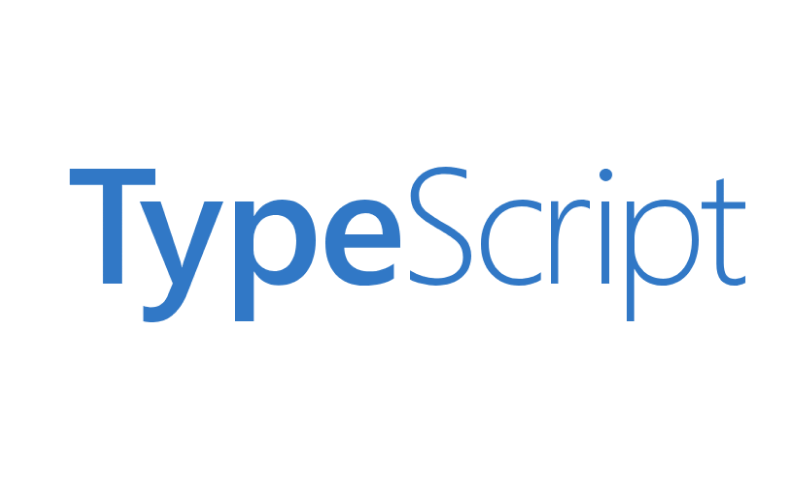TypeScript is a powerful programming language that adds optional static typing to JavaScript and is designed for the development of large-scale applications. It is transpiled to JavaScript and can be used with a variety of technologies, including React, Node.js, and Electron. TypeScript can help improve the reliability and maintainability of code and is widely used by companies and organizations for building large-scale applications. With features such as interfaces, classes, and decorators, TypeScript is a valuable tool for developers working on complex projects.
What is TypeScript?
TypeScript was developed by Microsoft and continually maintained throughout the course of its development. It was created by Anders Hejlsberg, the lead architect of the C# language and creator of Turbo Pascal and Delphi. Initially released in 2012, TypeScript continually receives features, fixes and updates.
The language was designed to be a typed superset of JavaScript. Any valid JavaScript code is also valid TypeScript code and vice versa. Due to this, developers can get started easily, since they could use their existing JavaScript code and gradually add type annotations as needed.
TypeScript originated from the shortcomings of Javascript in the development of large-scale applications. Challenges in dealing with complex Javascript code led to a demand for custom tooling to ease the development of components in the language. Several well-known companies and organizations use TypeScript in their development of large-scale applications, including Microsoft, Airbnb, Dropbox, Coursera, and Asana to name a few.
TypeScript has established itself as a popular choice for companies looking to improve the reliability and maintainability of their web applications, particularly in large-scale projects. Microsoft actively develops and maintains TypeScript and leverages a strong community of both users and contributors.
A brief history of TypeScript
TypeScript has witnessed a handful of new features that enable developers to write more expressive and scalable code, enhance code organization, and promote reusability. In the early stages, TypeScript was positioned as a “JavaScript superset,” meaning that any valid JavaScript code was also valid TypeScript code. This compatibility lets developers seamlessly migrate existing JavaScript projects to TypeScript and take advantage of its additional features. Through static typing, developers can catch errors during the development phase, reducing the likelihood of bugs and improving overall code quality.
Over the years, Microsoft has continuously invested in TypeScript, releasing regular updates and expanding its capabilities. The TypeScript compiler (TSC) plays a pivotal role in transforming TypeScript code into standard JavaScript runs on any browser or JavaScript runtime. Integrated Development Environments (IDEs), with Visual Studio Code (VS Code) leading the pack, provide robust tooling support for TypeScript development, offering features like intelligent autocompletion, refactoring, and debugging.
A brief look at how TypeScript works
TypeScript is a powerful language for developers working with applications, particularly those of enterprise-scale. Static typing and other features such as JSX support empower teams to work on complex projects more efficiently, while reducing errors and unnecessary complexity.
When writing TypeScript, developers use a syntax similar to that of JavaScript, but with the addition of type annotations – which allow for explicitly specifying the types of variables, function parameters, and return values. The TypeScript compiler, known as TSC, analyzes the code and checks for type compatibility based on these annotations.
Firstly, the built-in compiler parses the TypeScript code to understand the structure and identify any errors or inconsistencies. Secondly, it carries out a process called type checking, whereby it verifies that the types used in the code align correctly, helping catch potential bugs and improve code quality.
Once the code passes the type-checking phase, the compiler transforms it into plain JavaScript code, removing any TypeScript-specific syntax and type annotations, resulting in JavaScript code that can be executed by browsers or Node.js. The generated JavaScript code is compatible with various JavaScript runtime environments and can seamlessly integrate into existing projects.
What makes TypeScript a popular choice?
Throughout the years, TypeScript has garnered tremendous popularity among developers working within both small and large-scale applications or projects. With a large and vibrant community, frequent updates, and a wide range of third-party libraries and tools are available. There are also many resources available for learning TypeScript, including books, online courses, and articles accessed via official and unofficial sites.
Integration with JavaScript
TypeScript offers seamless integration with JavaScript, the most widely used programming language for web development. Being a superset of JavaScript, TypeScript ensures compatibility and allows organizations to leverage their existing JavaScript codebase while providing enhanced features and capabilities.
Static typing for robust code
One of the key advantages of TypeScript is its static typing. Unlike JavaScript, which is dynamically typed, TypeScript enables developers to define and enforce types during development. This static typing helps catch errors early in the development process, resulting in more robust and reliable code. By detecting potential issues before runtime, TypeScript enhances the overall quality and maintainability of the codebase, reducing the likelihood of bugs and improving productivity.
Advanced type system for scalability
As a language with an extensive type system, it includes various advanced features such as union types, intersection types, generics, and more. These features enable developers to express complex data structures and ensure type safety throughout their code. Through using these powerful type features, organizations can create scalable and maintainable applications, particularly in large and collaborative projects.
Excellent tooling support for productivity
Excellent tooling support, including a dedicated TypeScript Compiler (TSC) and robust IDE integration, with Visual Studio Code (VS Code) makes TypeScript a popular choice. These tools offer features like intelligent auto-completion, static analysis, and refactoring capabilities, enhancing developers’ productivity and enabling them to write cleaner, more maintainable code.
TypeScript use cases
TypeScript is used by a wide variety of companies and organizations for building large-scale applications. Some of the biggest users of TypeScript are:

Dropbox
A popular file hosting service for storing, sharing, and accessing files on the go. It features file syncing, collaboration tools, and integrations with other apps. TypeScript ensures the service will maintain its high reliability and scalability with new features for the platform.

Microsoft
The creator of TypeScript, it is used for the development of its products and services. This includes web applications, desktop applications, and server-side applications.

Coursera
A popular MOOCs-focused platform that provided various online courses for beginners and professionals. The platform uses TypeScript to improve the reliability of its code, and make it easier for the development team to work with the large codebase.

Asana
A project management and team collaboration platform that allows teams to track and manage tasks, projects, and workflow. TypeScript helps with the reliability and maintainability of its codebase as it continues to add new features and scale its platform.

Airbnb
A popular home rental platform that lets users search and book rentals for vacation. The platform includes features such as payment processing, messaging, and online reviews. It uses TypeScripts to help provide reliable services and scalability to its codebase.
TypeScript’s benefits for organizations and enterprises
The language provides numerous benefits for organizations and enterprises that adopt it as their programming language of choice. Here are some key advantages:
Better quality code | With static typing and advanced type checking, TypeScript helps organizations produce more reliable and bug-free code. The compiler catches type-related errors early, reducing the likelihood of runtime issues and improving overall code quality. |
Improved developer productivity | TypeScript’s features, such as code autocompletion, refactoring tools, and error checking, greatly enhance developer productivity. The language provides a more structured and guided development experience, enabling developers to write cleaner code and reducing the time spent on debugging and troubleshooting. |
Scalability and maintainability | As organizations and enterprises grow, their codebases become more complex. TypeScript’s advanced type system and modular architecture facilitate code scalability and maintainability. The type annotations and type inference make it easier to understand the codebase, identify dependencies, and refactor the code when necessary. |
Collaboration and teamwork | TypeScript’s static typing and clear interfaces enhance collaboration among team members. The type annotations serve as documentation, making it easier for developers to understand each other’s code and collaborate effectively. This leads to smoother teamwork, reduced communication gaps, and improved overall efficiency. |
Thriving developer community and industry support | Backed by Microsoft, TypeScript enjoys continuous development and frequent updates, ensuring compatibility with the latest ECMAScript standards and addressing emerging needs in the software development space. Smooth integration with popular frameworks and libraries such as Angular, React, and Vue.js allows organizations to leverage the vast ecosystems surrounding these frameworks. |

